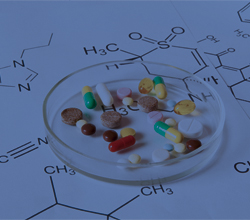
Preventing Listeria in RTE processing plants
 Jeffrey Brusseau
Jeffrey Brusseau
 60 Min
60 Min
Product Id: 702220
This Listeria Prevention training will cover HAACP requisites as well as GMP and Sanitation programs to address areas of possible listeria contamination and methods to eradicate them.

US FDA requirements for food contact packaging material compliance
 Thomas J. Dunn
Thomas J. Dunn
 60 Min
60 Min
Product Id: 701958
This webinar will identify components of a valid letter of guarantee for the food processor and the determinations that food packaging supplier must make in issuing the guarantee, certifying that they comply with US FDA regulations.

Regulation of printing inks on food contact packaging materials in the US & EU
 Thomas J. Dunn
Thomas J. Dunn
 60 Min
60 Min
Product Id: 701960
This webinar addresses new test methods for quantifying migration of Printing inks on food packaging materials into the packaged food and how they affect food safety law compliance.

Food Recalls - Planning and conducting a Food Recall and Crisis Communication
 Irwin Pronk
Irwin Pronk
 90 Min
90 Min
Product Id: 701108
This Food Recall training will help you create a robust process for planning and conducting a food recall and crisis communication. It will help each department anticipate their roles and responsibilities so your company’s response will be effective and swift.

Good manufacturing practices for food contact packaging producers in the US and EU
 Thomas J. Dunn
Thomas J. Dunn
 57 Min
57 Min
Product Id: 701959
This food safety webinar addresses components of Good Manufacturing Practices that packaging material suppliers should follow for adherence to both regulatory and voluntary standards protocols

Alternative Food Preservation: Pasteurization
 Dr. Tatiana Koutchma
Dr. Tatiana Koutchma
 60 Min
60 Min
Product Id: 701886
In this Food safety training learn about Food preservation, traditional heat treatment, emerging food processing technologies, pasteurization, shelf life extension, acid and low acid foods, US FDA and USDA regulations, Health Canada, new regulatory terms and definitions, novel foods, high hydrostatic pressure, ultraviolet light, microwave heating, pulsed electric fields.

Record Keeping for the Bioterrorism Act: Meeting and Exceeding the Requirements in a Simple Manner
 Craig Nelson
Craig Nelson
 60 Min
60 Min
Product Id: 701318
This Bioterrorism act training will provide the attendee a clear understanding of what is expected, how an investigation will proceed, and how to keep records that will minimize the impact of an incident.

HACCP in a Real World Environment
 John Miller
John Miller
 60 Min
60 Min
Product Id: 701173
This HACCP training will explain the FSIS regulations and policies program requirements.

Critical Control Points (CCP’s). Where are they? Why? When?
 Irwin Pronk
Irwin Pronk
 60 Min
60 Min
Product Id: 701180
This Food safety compliance training will explain the CCP Decision Tree and help you understand the principles behind each question. We will review various food processing steps in a variety of situations to determine whether they are CCP’s. What is the thought process in determining a CCP? Can it be done consistently? What criteria are used? Are some processing steps always CCP's e.g. heating? If not, why? One thing to remember is the importance of analyzing the hazards at each step very carefully. The more clearly the hazards are described (including equipment failures, personnel errors etc) the easier it will be to find the CCP.

Validation & Verification: Differences between USDA and Codex
 Irwin Pronk
Irwin Pronk
 90 Min
90 Min
Product Id: 701179
This Food safety compliance training will help you understand the significant differences between the two words and even multiple meanings of the term ’Verification’. Between USDA and Codex there are slight differences and on top of that the definitions have changed over the years. It is very easy to get confused. By going back to principles, referring to other standards (e.g. ISO9000) and simpler terminology students will clearly understand the intent of both Validation and Verification. Having clarified the intent and principles we will review examples of Verification in both Prerequisite Programs and CCP's.
Validation will be explained, especially as it relates to validation of CCP's though the concept pervades the entire HACCP process. Examples will include Cooking, Cooling, and Allergen Cleaning. We will also discuss the two aspects of Validation; the product risk (microbiological, chemical or physical) as well as the Capability of the process. Both must be understood to ensure the control of CCP's is robust. Methods to verify the entire HACCP System will be covered and how this is different from verifying Prerequisite Programs and CCP's.

Applying HACCP to insure compliance
 Joyce Wilkins
Joyce Wilkins
 60 Min
60 Min
Product Id: 700466
This HACCP training will equip the student to apply the concepts of HACCP in their food operation in a manner that is useful and effective without being unduly burdensome. Although HACCP has been around for over 40 years, it still remains the standard in designing a food safety program.


























